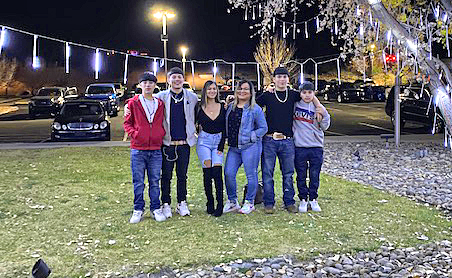It takes time—and support—to build a sustainable life.
When Claudia came to Colorado-based BeyondHome, the odds of becoming self-sufficient looked daunting. She was fleeing abuse. She had a sixth-grade education. Three low-paying jobs. Five kids, three in diapers. Zero family support. Claudia was trapped in poverty—and exhausted.
Seven years later, she is a pharmacy technician and proud homeowner. The catalyst? BeyondHome’s wraparound services, which offer everything from safe housing to financial literacy and emotional counseling for families at risk of homelessness.
BeyondHome’s executive director Karen Allen sees safe housing and the wraparound services as a matter of equity. Housing and the means to maintain it are out of reach for many adults—due to family circumstances, ill health, and poor access to education, transportation, childcare, and good-paying jobs.
“We don’t all start from the same place. And when you start from way below zero, it is going to take a long time to reach your true potential,” she says. Lack of housing is particularly acute in regions like the Denver Metro area where housing costs are high, making it difficult for even those working 60 hours a week at minimum wages to keep their families afloat without government assistance.
Founded in 1987 as Colorado Homeless Families, the organization rebranded to BeyondHome in 2020. The new name reflects the holistic approach towards self-sufficiency. The name change also takes into account feedback from the program’s graduates, some of whom were reluctant to publicize that they were once homeless.
That sense of listening to those it serves and ensuring that their dignity is intact permeates the program. Families are provided with housing that they can be proud to call home, children have youth programs that offer fun and community, and parents are matched with mentors. Allen likens it to parenting new college students—families are given the right tools, knowledge, and support before being encouraged to fly.
Such support requires a long-term view; equity takes time. On average, families stay for four years; so far, the shortest tenure has been 18 months. Claudia’s family stayed seven years, the longest anyone has stayed in the program. Support doesn’t end when families are financially independent but until they are emotionally stable as well, an important element especially for victims of domestic violence who are at high risk for falling into abusive relationships. Says Allen, “If you don’t deal with the emotional side, you can unwittingly go back to where you started.”
Accordingly, tenure is not how BeyondHome evaluates itself. Instead, here’s another data point: 100 percent of the organization’s graduates have stayed self-sufficient. It’s a remarkable statistic.
As demand for its services grows, BeyondHome has plans to expand. It is an expensive proposition, but Allen keeps her sights on the future. “Think about the money that taxpayers spend on families who never get off public assistance,” she says. “Our approach is expensive in the short run, but it gives families opportunities to break out of generational poverty. The payoff is in the future.”

